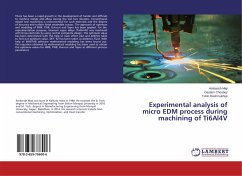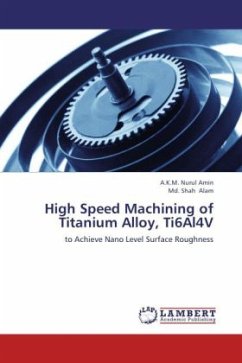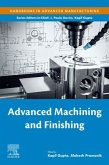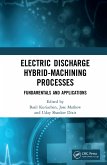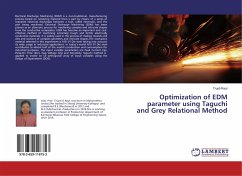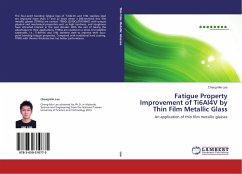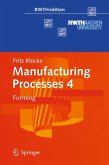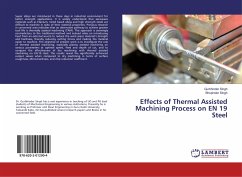There has been a rapid growth in the development of harder and difficult to machine metals and alloys during the last two decades. Conventional edged tool machining is uneconomical for such materials and the degree of accuracy and surface finish attainable is poor. The approach of optimum and modeling of MRR, TWR, Overcut and Taper has been applied. For the experimentation purpose, titanium super alloys (Ti-6Al-4V) was machined with brass electrode by using central composite design. The optimum value has been determined with the help of main effect plot and ANOVA table to find out optimum value. DEF- 92 has been taken as dielectric fluid. With help of MINITAB software mathematical modeling has been found out. The equation obtained by mathematical modeling has been used to obtain the optimum values for MRR, TWR, Overcut and Taper at different process parameters
Bitte wählen Sie Ihr Anliegen aus.
Rechnungen
Retourenschein anfordern
Bestellstatus
Storno

